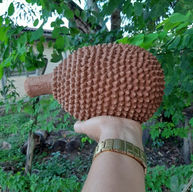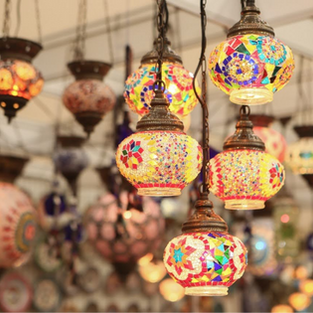
Northeast Region | Nurturing Handicraft Heritage
Beyond sugarcane, green coconuts, coconut straw, and reeds from the sertão, the art of this region is brimming with style, including clay sculptures and ceramic utensils. Due to its colonization by various peoples, the cultural diversity is incredible. Portuguese and Azorean settlers brought Bobbin lace, and labyrinth embroidery as part of their heritage, as well as Irish lace, Renaissance lace, and Richelieu embroidery, among others.
Alagoas: A Hub of Traditional Craftsmanship
Filé Embroidery: Alagoas' Cultural Treasure
Filé embroidery, a cherished form of needle lace, has deep roots in Alagoas, with origins tracing back to the 16th century.
Technique and Tradition
Filé uses a French-derived net base for intricate stitching. Unique named stitches and generational knowledge transfer are key elements of this craft.
Cultural Significance
Mundaú-Manguaba Lagoon is the epicenter of filé production. Recognized as Intangible Cultural Heritage and awarded Geographical Indication, filé safeguards artisans.
Preserving the Legacy
Filé artisans balance traditional techniques with innovation, ensuring the craft's continued relevance and cultural importance.
Global Recognition
Expanding awareness through international fairs and collaborations, promoting filé embroidery on the world stage.








































